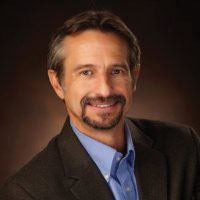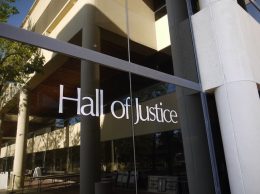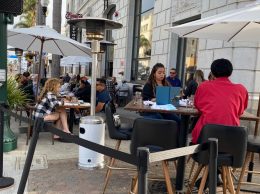
John Krist
By John Krist
In her Dec. 2 commentary criticizing a Pacific Coast Business Times article about the effect of Save Open-space and Agricultural Resources on property values, Ventura County Supervisor Linda Parks accurately but selectively quotes from Farm Bureau of Ventura County’s Land Use Policy.
Her cherry-picking of a single passage from this five-page document conveys the impression that FBVC supports, or at least shares, the goals of the SOAR organization and ordinances.
Nothing could be further from the truth.
The Farm Bureau does support the concept of finite urban growth boundaries in Ventura County. This policy stems from our conviction that agricultural zoning should be a final and permanent land-use designation, not simply a place-holder until the market determines the time is ripe for that property’s conversion to urban uses.
In our view, farmland that is being farmed already has found its highest and best use. This is not necessarily how economists look at such things, but we are not economists — we are farming advocates. And without access to reasonably priced farmland, farming is doomed.
But SOAR is less about establishing growth boundaries — those existed, in the form of sphere-of-influence boundaries, long before SOAR — than it is about the way changes in those boundaries are made. And this is the crux of our longstanding opposition to SOAR, made clear in this section of our Land Use Policy:
“FBVC believes that judicious and sound land use decisions cannot be made using the initiative or referendum processes. Land use is a complicated issue having profound economic and social consequences for the entire community over the long term. Deliberative government processes which take into account the interests of all stakeholders, including landowners, result in the most appropriate land use decisions.”
Modern election campaigns may be characterized as many things, but “deliberative” is not one of them.
Parks also quotes selectively from the historical record to make it seem as if Ventura County voters have been weighing in regularly on farmland development proposals over the past 20 years and making appropriately judicious decisions.
“Of the 11 times projects have come up for a SOAR vote,” she wrote, “more than half have been approved, with voters removing more than 8,000 acres from SOAR protections.”
Reality is a bit more complicated.
Six of those 11 votes pertained to the same project. And nearly all 8,000 acres removed from SOAR comprise two projects in Santa Paula, which were the subject of extremely expensive public relations campaigns by their corporate proponents.
Outside of Santa Paula, voters have approved conversion of 41 acres and rejected projects that would have converted 12,000 acres. One of the projects approved was a church in Ventura and another was expansion of a retirement home for priests in Ojai, hardly magnets for controversy and neither addressing the county’s acute housing shortage.
Viewed in this context, it seems clear that the practical result of SOAR across most of the county may well be the de facto development ban its opponents claim, particularly for small projects that aren’t backed by deep-pocket corporations — precisely the kind of desperate “exit strategy” proposals we might expect to see from owners of small family farms driven out of business by neighbor hostility, expensive water, crippling regulations and other threats.
We can argue whether such a prohibition is good or bad, but SOAR’s supporters should be honest about the real-world ramifications of their idealistic regard for ballot-box governance.
Finally, it’s time to retire one of the SOAR campaign’s most misleading claims: that the ordinances are responsible for saving local agriculture. They aren’t.
Ventura County farming persists in the face of daunting challenges because the people who conduct it are passionate and creative about what they do — and because they can still make a living doing it — not because voters tell them they have no other option.
In fact, Ventura County agriculture doesn’t need “saving,” particularly not from its practitioners and certainly not by voters or public officials who know nothing about farming.
Given fair markets, reasonable regulations and a supportive political environment, our agricultural community is perfectly capable of saving itself.
Some rain wouldn’t hurt, either.
• John Krist is CEO of Farm Bureau of Ventura County.






 Print
Print Email
Email
















